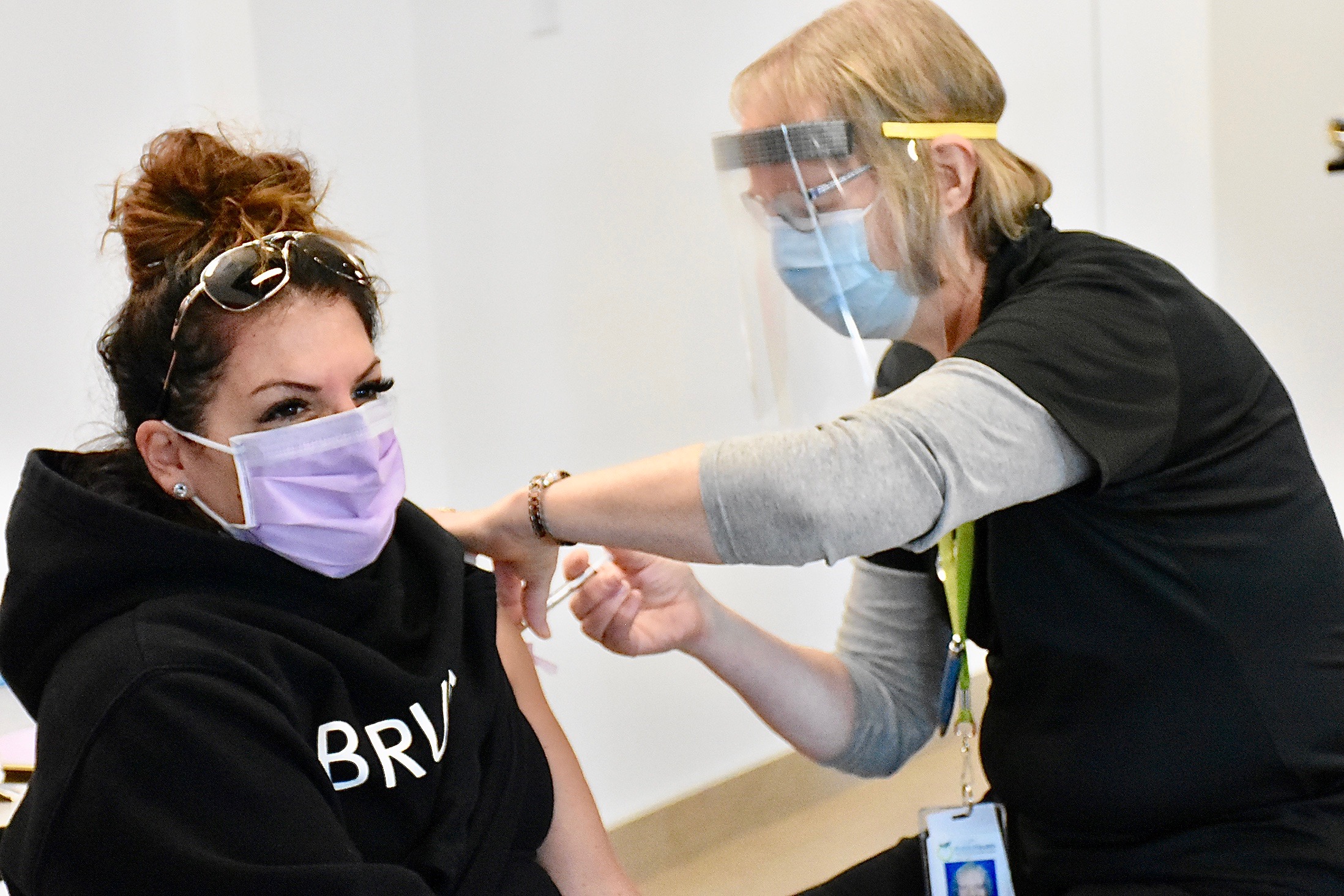GUELPH – The local health unit is trying to figure out its next steps after an announcement Jan. 15 that production issues in Europe are affecting Pfizer’s ability to ship the COVID-19 vaccine to Canada.
“It’s concerning news that Pfizer is slowing distribution. We are still trying ascertain how much impact it will have on our local vaccine program,” Dr. Nicola Mercer, Chief Medical Officer of Health for Wellington-Dufferin-Guelph Public Health (WDGPH), stated in an email.
Federal procurement minister Anita Anand said at a press conference in Ottawa that Pfizer is reducing deliveries to Canada because of supply chain issues in Europe.
“This is unfortunate. However, such delays and issues are to be expected when global supply chains are stretched well beyond their limits,” Anand said. “It’s not a stoppage.”
WDGPH administered the first Pfizer vaccine at its Guelph headquarters on Jan. 6 and by the end of the day on Jan. 14 had given 1,384 doses.
It anticipated it could administer 500 shots a day with enough supply.
The vaccine requires a second shot 21 days after the first and public health did not hold back any of the vaccine for the second round.
Danny Williamson, spokesperson for WDGPH, said 3,700 doses of the Moderna vaccine arrived this week as expected, and “we will be vaccinating this weekend.”
Because the Pfizer vaccine must be stored in special low temperature freezers and is delicate to handle, WDGPH has been administering it at its Guelph headquarters to health care workers.
Moderna travels easier and public health plans to go to long-term care homes and vaccinate residents on-site.
Health care workers and long-term care residents are the priority population for vaccination right now.
Canada has already received 380,000 doses of the Pfizer vaccine to-date and was expecting another 400,000 this month and two million in February.
Anand said the company expects it will be able to deliver four million doses by the end of March but cannot make that guarantee.




